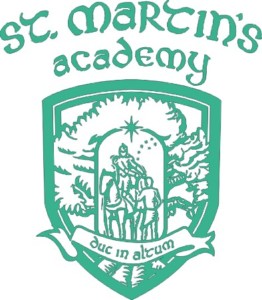 St. Martin’s Academy Collaborates With “God the Farmer” So That Holiness Can Take Root and Flourish
St. Martin’s Academy Collaborates With “God the Farmer” So That Holiness Can Take Root and Flourish
By Daniel Kerr*
And as he sowed, there were grains that fell beside the path, so that all the birds came and ate them up. And others fell on rocky land, where the soil was shallow; they sprang up all at once, because they had not sunk deep in the ground; but as soon as the sun rose they were parched; they had taken no root, and so they withered away. Some fell among briers, so that the briers grew up, and smothered them. But others fell where the soil was good, and these yielded a harvest, some a hundredfold, some sixtyfold, some thirtyfold.
—Matthew 13: 4-8
At St. Martin’s Academy in Fort Scott, Kansas, our goal is simple: to create good soil. And as a boarding school for boys that combines classical academics with a practical work program on a farm, that soil building takes a variety of forms.
In a literal sense, it is done in our pastures and gardens – a farm is only as healthy as its soil. But in the deeper and more mystical sense, our soil building happens in the souls of the young men entrusted to our care. Deus Agricola est. God is a farmer, says Saint Augustine, and as educators we are but collaborators with God, chiefly by helping to get the soil right – that is, by putting in order the natural conditions in which the supernatural can take root and flourish.
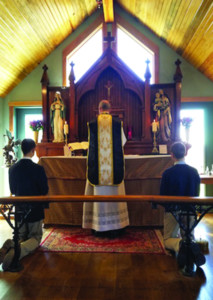 Ultimately, our mission, the reason why we exist, is for sainthood. More than savvy politicians, brilliant scientists and princes of the public square, the world needs saints, the true movers of history who walk circumspectly, redeeming the times. This all may sound rather lofty, but frankly there is just no other reason for us to exist. And as Pope Piux XI makes clear in his encyclical Divini Illius Magistri, sainthood is the aim of Christian education because it is the end for which we were made. To build good soil, therefore, St. Martin’s adheres to four pedagogical commitments that guide every decision we make. These commitments are: to awaken wonder, to heal the imagination, to restore authentic masculinity, and to develop attentiveness.
Ultimately, our mission, the reason why we exist, is for sainthood. More than savvy politicians, brilliant scientists and princes of the public square, the world needs saints, the true movers of history who walk circumspectly, redeeming the times. This all may sound rather lofty, but frankly there is just no other reason for us to exist. And as Pope Piux XI makes clear in his encyclical Divini Illius Magistri, sainthood is the aim of Christian education because it is the end for which we were made. To build good soil, therefore, St. Martin’s adheres to four pedagogical commitments that guide every decision we make. These commitments are: to awaken wonder, to heal the imagination, to restore authentic masculinity, and to develop attentiveness.
I’d like to consider these commitments specifically within the framework of three well-chosen realities of the place, namely that it is: a boarding school, without screens, on a working farm.
In the first place, our boys’ full-time residence is an essential part of our mission. Education is not a 9 to 5 proposition. In order to make a compelling counteroffer to the bombardment of mainstream media, an entire culture needs to be articulated, and then lived. The building of such a culture requires constant attention to detail across every front: the way we worship, the prayers we pray, the songs we sing, the books we read, the clothes we wear, the food we eat, our manners at the table, the jokes we laugh at (and don’t laugh at), the games we play in our leisure time. The result is a discipulus with first-hand experience in the art of living well.
Further, the boarding environment offers boys something that is altogether lost today in Western culture: a rite of passage. Jason Craig, in Leaving Boyhood Behind, notes that in nearly every culture, boys on their way to manhood have gone through a rite of passage that consistently includes the elements of separation, initiation and incorporation. A boarding school is uniquely positioned to deliver this three-part rite of passage.
Take separation, for example. Each school year begins with difficult, sometimes teary, goodbyes as our 9th graders bid farewell to their family, and in a particular way, to their mothers. I formerly considered this to be an unfortunate, circumstantial by-product of our being a boarding school. But increasingly it has become clear that this painful separation is an absolutely essential part of these boys’ maturation. And it clears the way for the subsequent phases whereby boys prove their mettle over time and are finally welcomed into a community of men.
Second, St. Martin’s is a screen-free campus. No computers, smartphones, or televisions are permitted for the students. Besides the obvious and grave moral peril of online pornography, the pervasive use of screens is devastating to the imagination. A recent study from Common Sense Media revealed that the average American teenager spends 9 hours a day looking at a screen. It is critical to remember that one’s imagination ought to be a powerful ally in the moral and intellectual life. The Ignatian spiritual exercises, for example, leaned heavily upon an active imagination well-stocked by the literature of Holy Scripture and took for granted the first-hand experience of common agrarian pursuits like shepherding and viniculture.
Today, as passive consumers of entertainment, we stock our imaginations with images that are banal, violent, perverse, demonic and ultimately, unreal. And what’s more, in doing so, we effectively outsource the active faculty of the imagination altogether. This is enormously destructive to both the head and the heart. At St. Martin’s, we set aside screens to allow the imagination to heal and regenerate, and we replace the visual noise with great stories, songs and poetry. And even more fundamentally, we offer the direct experience of the real: the sound of a rooster crowing, the feeling of splitting well-seasoned oak, the taste of pastured lamb.

Further, screens decrease one’s attention span. As philosopher and mystic Simone Weil so beautifully writes: “…developing attentiveness may very well be the final purpose of all education.” Prayer, the outward gaze upon God, is our highest calling and the state towards which all human endeavor, especially education, should be oriented. For example, all of our students select a “sit spot,” a quiet and solitary location in the woods where they can observe the changing natural world. For most, this time of silence is uncomfortable at first, as self-preoccupation tends to obscure one’s vision. Over time, however, the student’s focus shifts outward and he notices things that had previously escaped detection: the chipping of a junco feeding on the ground, or the whistling of greenwinged teal flying low overhead of an overcast morning. This patient and receptive outward gaze begins a habit of mind that, Lord willing, may well detect the gentle stirring of the Dove Himself.
This brings us to the third essential element of the school’s operation: our practical work program on the farm. Each day, faculty and students milk cows, slop hogs, feed chickens, split wood, shovel dung and perform a host of other chores as part of a diversified and sustainable farming enterprise. The fruits of this work are enjoyed every day on the dinner table.
The farm provides the setting for our commitment to restoring authentic masculinity, which we define as a mature servant leadership, with Christ as our exemplar. Archbishop Fulton Sheen wrote that maturity comes about principally through pain and responsibility. This may sound harsh, but it is undeniably true. Through early morning and evening farm chores in fair weather or foul, our boys build habits of accountability and perseverance – and the confidence and self-possession that only the strenuous life can provide for a young man.
Interestingly, the work on the farm is also integral to our academic work, for the life of the intellect must be connected to tangible things or it is in great peril of becoming hollow. This contact cannot come through screens, or finally, even books. These three practices – the culture of a boarding school, the rejection of screens, and the hands-on work of the farm – have in common an emphasis on encountering reality itself and on its own terms.
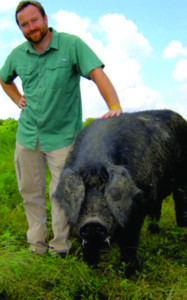
Daniel Kerr, President of St. Martin’s Academy
Finally, this experiential approach will develop a life-long perspective bringing our boys into constant contact with the ultimate Source of all reality. And if the soil is right, they will have the intellectual and moral wherewithal to continuously recognize and respond to Him in the encounter. The result, Lord willing, will be what Pope Pius XI calls the proper “product of Christian education… the true and finished man of character.”
*President, St. Martin’s Academy, Fort Scott, Kansas, USA



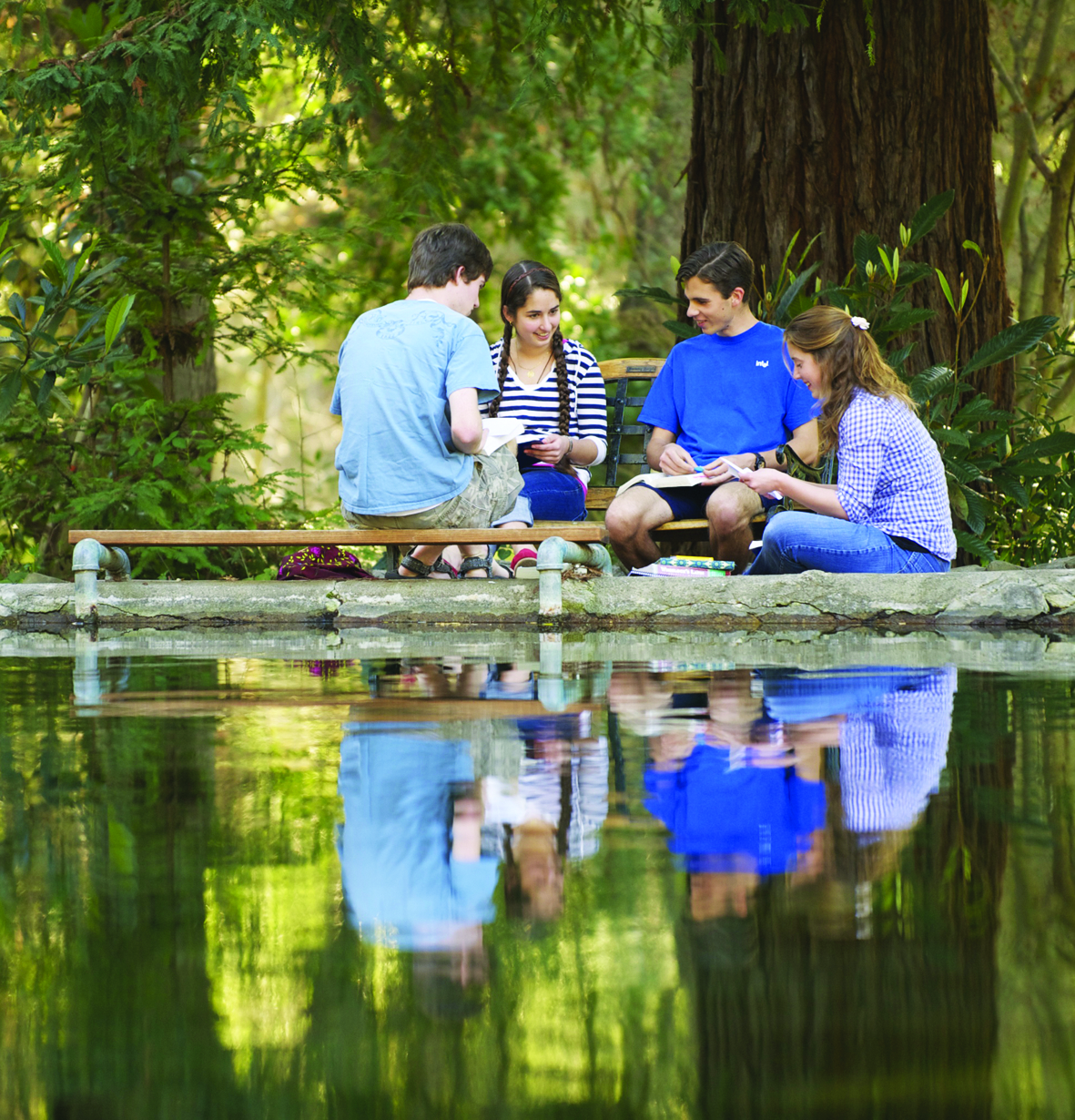

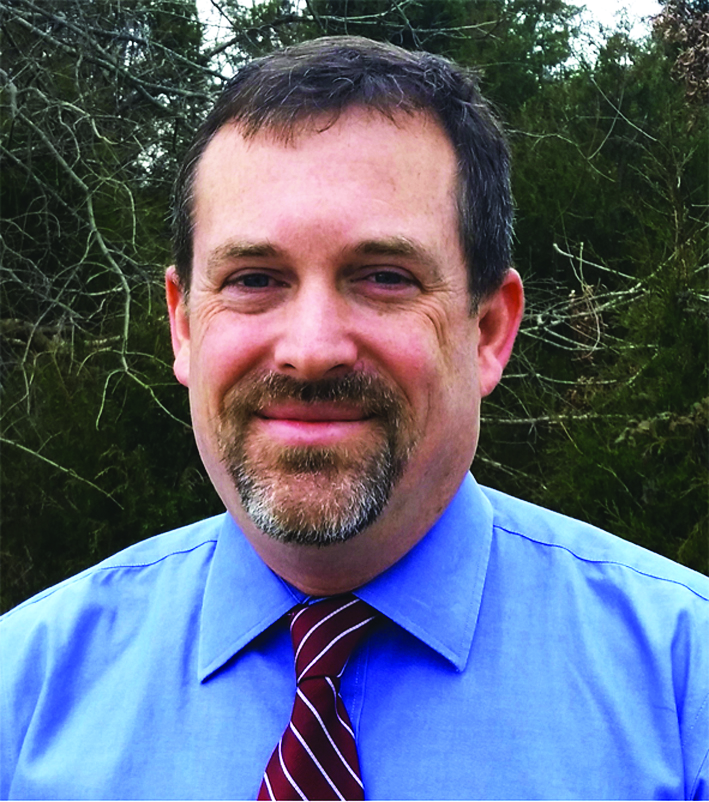
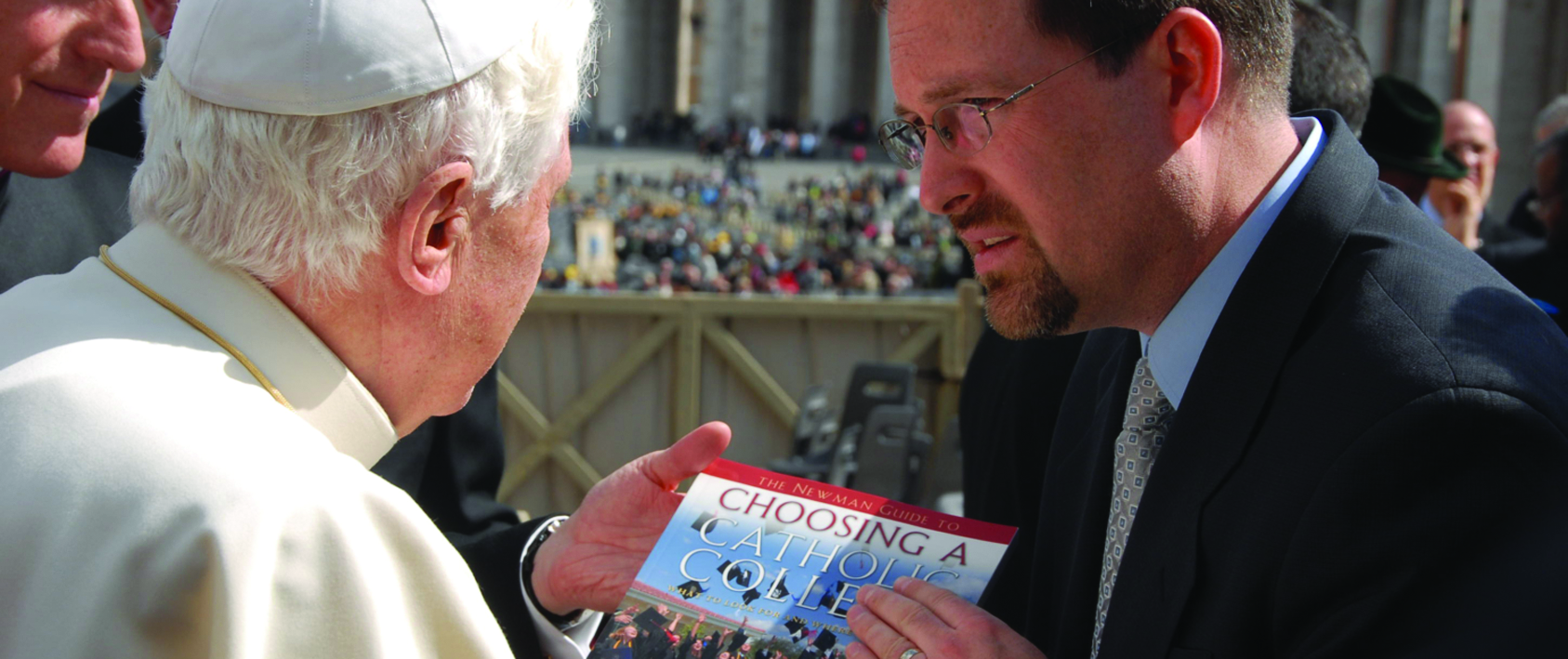
Facebook Comments